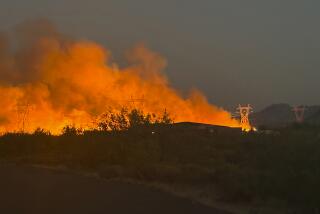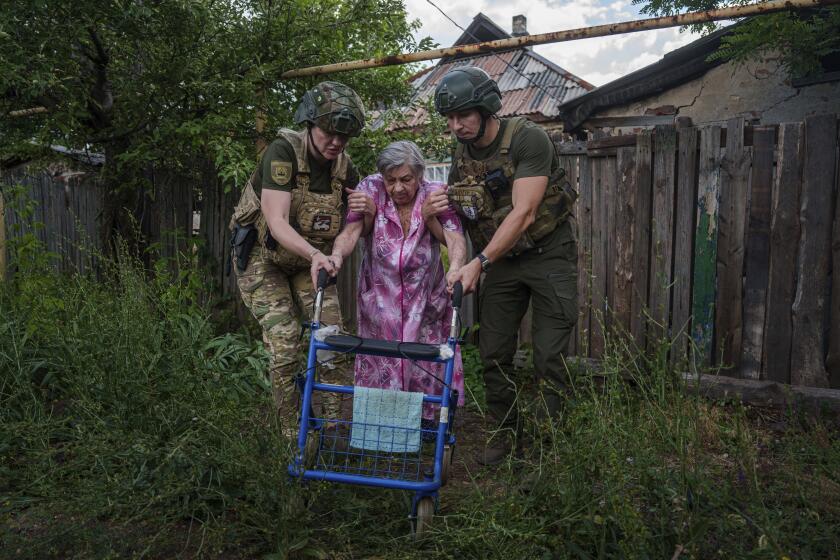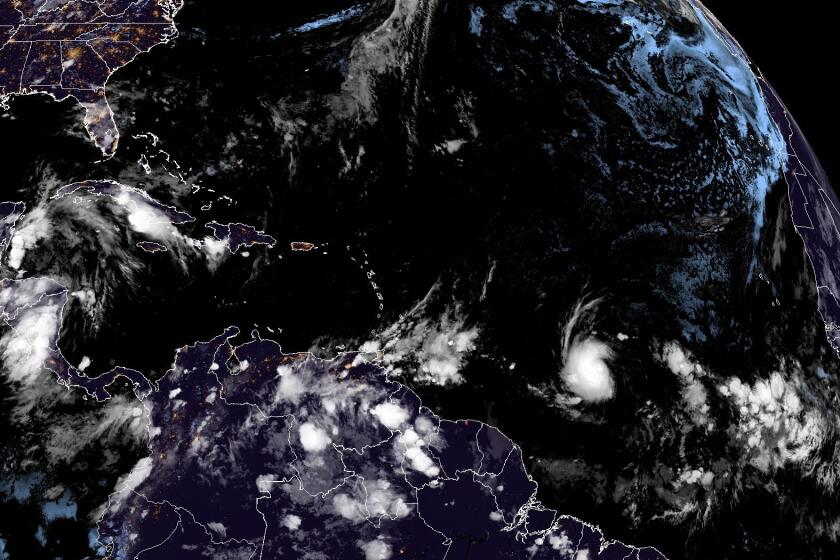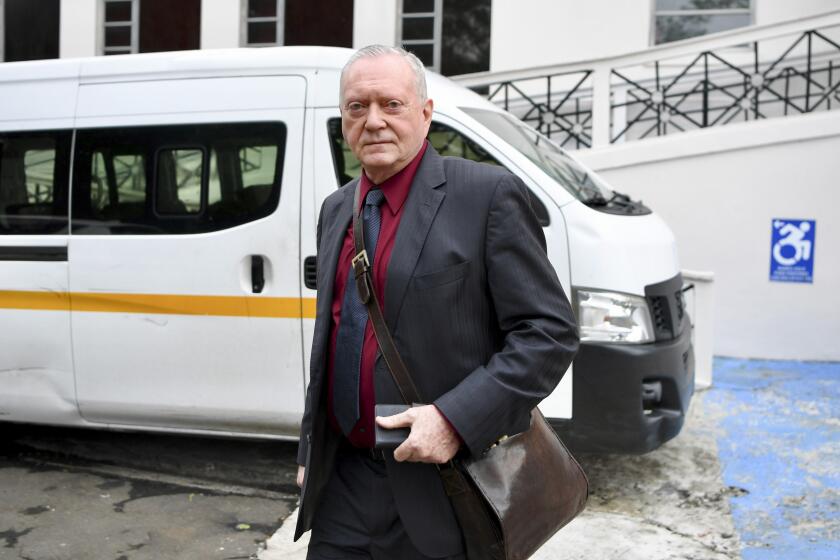China Bars 3 Journalists From Clinton’s Trip
On the eve of a major presidential trip, the Clinton administration on Monday officially protested to the Chinese for barring three journalists who were part of the White House press entourage from entering China.
The three work for Radio Free Asia, the independent but U.S. government-funded network that broadcasts news and programs promoting the value of democracy into China and several other Asian countries where censorship is prevalent.
“On Saturday, they all got phone calls from a Chinese Embassy official,” a Radio Free Asia spokesman said Monday. “He told each of them that their visas [to enter China] were being rescinded.”
The three correspondents had originally obtained visas from the White House in the same fashion as the 200 or so other reporters who will travel with President Clinton. On Monday night, a Radio Free Asia official said the three still hoped to leave for China on the White House press charter, which departs from Washington today.
But a White House official said the three reporters may be prevented from boarding the plane. He said the U.S. government may be legally required to prevent them from embarking for China because they do not have valid visas.
“We have protested this decision by the Chinese government,” the White House official said of the developing, major contretemps. “We think this is a serious mistake. . . . We have talked to them [the Chinese] very forcefully. We have told them this will have a short-term impact on the start of the president’s trip, a very regrettable impact.”
The Chinese Embassy in Washington could not be reached Monday night for comment. But one source of irritation for the Chinese government might be the extensive coverage Radio Free Asia has given to China’s democracy movement. One of its newest commentators is Wang Dan, the recently exiled Chinese dissident.
*
The Chinese action was quickly denounced by members of Congress.
“It’s amazing to me that they [Chinese leaders] would pull off this stunt at this time. And they’re getting away with it,” said Rep. Nancy Pelosi (D-San Francisco). “If their country is as they describe it, what do they have to fear from Radio Free Asia covering the trip?”
The three whose visas were rescinded are reporters Feng Xiaoming and Arin Basu and producer-technician Patricia Hindeman. Basu is an Indian citizen; Feng and Hindeman are Americans.
The visa controversy is the latest in a series of disputes between the Chinese government and Radio Free Asia. Officials in Beijing have argued that the organization’s broadcasting activities are a form of ideological campaign through which the United States seeks to spread democracy in China and undermine the Communist Party leadership.
Radio Free Asia was set up by Congress with support from Clinton, who strongly endorsed the idea in his 1992 presidential campaign.
Less than two weeks ago, in a major speech, Clinton pointed to Radio Free Asia as an important part of his administration’s policy toward China, saying: “Our relationship simply cannot reach its full potential so long as Chinese people are denied fundamental human rights. In support of that message, we are strengthening Radio Free Asia.”
But since Radio Free Asia started broadcasting in 1996, the Chinese have repeatedly jammed its broadcasts and sought to dissuade other Asian nations from allowing transmitters on their soil.
More to Read
Start your day right
Sign up for Essential California for news, features and recommendations from the L.A. Times and beyond in your inbox six days a week.
You may occasionally receive promotional content from the Los Angeles Times.






